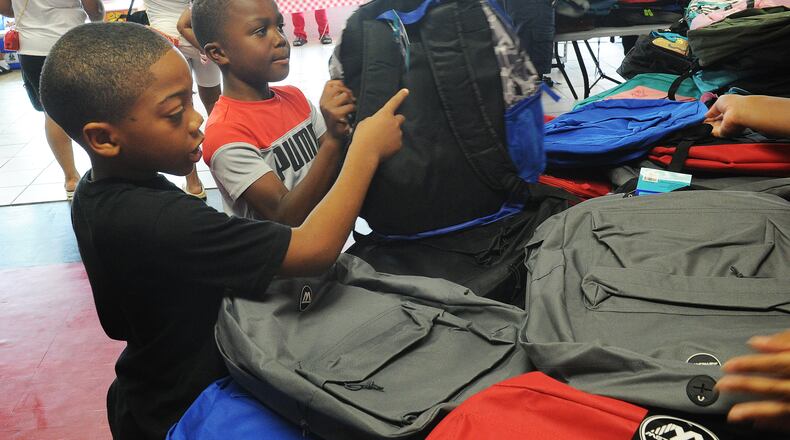“The angst that you normally have kids going through this time of year, I would say that it’s more intense,” he said.
Some of these worries can stem from a significant change in routine such as starting school in a new building, or could be centered around academic or social stressors, Casdorph said. The return to in-person learning could be especially difficult for children dealing with social anxiety.
“Kids that had been bullied, or they might have some sort of social anxiety, they will be anxious at the prospect of seeing kids at all,” he said. “Particularly if they’ve been online all this time. They will be a little far behind as far as self confidence and social skills.”
Local schools have taken note of the mental health struggles brought on by the pandemic. Maintaining the mental health of students was tagged as the biggest challenge facing Archbishop Alter High School for this upcoming school year by principal Lourdes Lambert.
“We are very concerned about the mental health of our students, and how the pandemic has affected them on a long-term basis,” Lambert said. “Anxiety, depression, and feelings of isolation have become more prevalent in our society, and our school is no exception.”
Parents should be on the lookout for signs of anxiety in their children, Casdorph said. Younger children may cite headaches, stomach aches or other physical ailments, while teenagers are more likely to act more withdrawn, describe feelings of sadness or depression, or could even start eating less, he said.
For parents, there are many ways to combat back to school anxiety. One of the most effective options is to be direct and ask the child what their thoughts are, operating under the assumption that their child could be struggling to some degree, Casdorph said.
“They should be proactive, and they should ask them what they are thinking, what do (they) think (their) friends are going to say, talk to them about those kinds of things,” he said.
The symptoms related to back to school anxiety are likely to subside after the first week after the new term.
When this type of anxiety does become present in children, it’s important for parents to try to pinpoint the exact cause of the anxiety and work to address it, Casdorph said. This could involve direct discussions between the parents their children, or even setting up a meeting with a school administrator to ease their fears from a different angle.
“Assure them that they’ve gotten to the point they are now, and by that very fact they are capable of a next step,” Casdorph said.
Another potential method could be holding some sort of event to acknowledge the accomplishment of returning to school.
“Some kind of celebration to celebrate the first day of school, something they can look forward to,” Casdorph said. “That really works for the younger kids, but I’m sure teenagers wouldn’t turn it down either.”
Keeping kids involved with other hobbies or groups outside of the classroom can be another way to help minimize school-related anxiety and stress, Casdorph said.
“I think extracurricular activities are therapeutic for most kids, where they can connect with a smaller group of kids that (have) a common interest,” he said. “So I would encourage that, looking to get involved when school starts back up.”
About the Author

